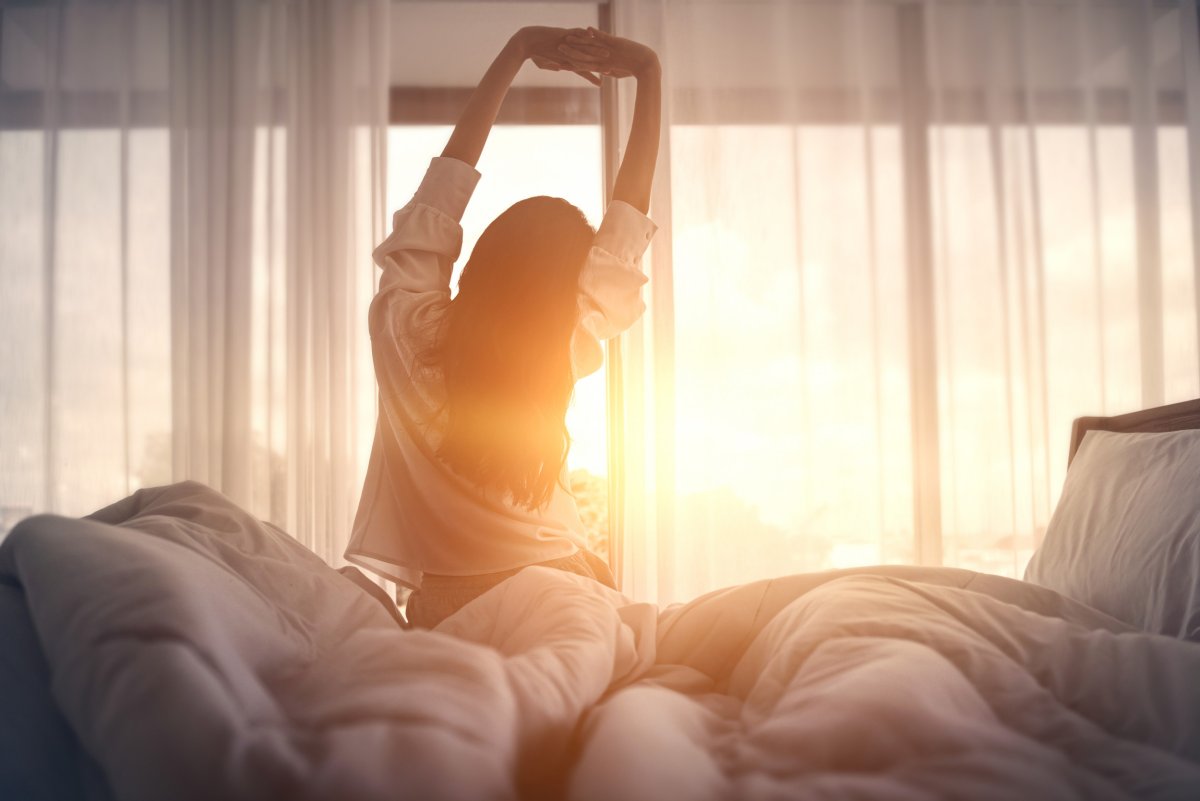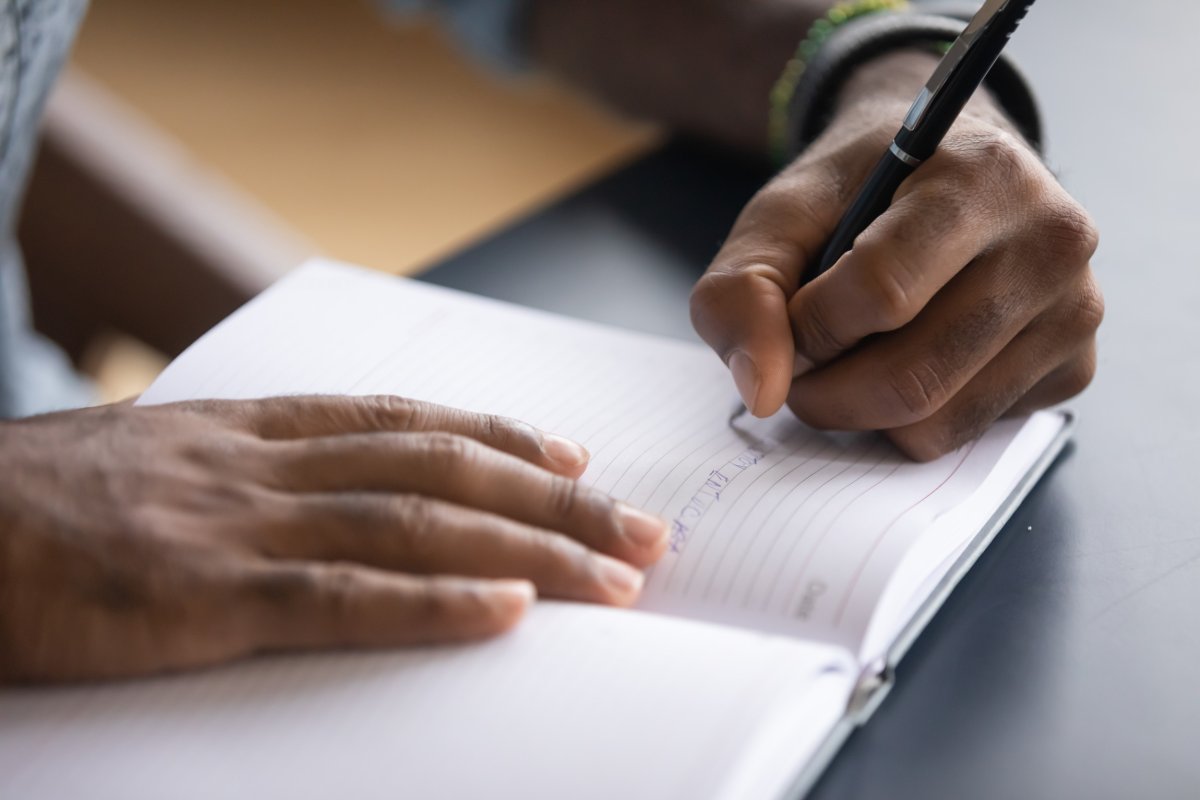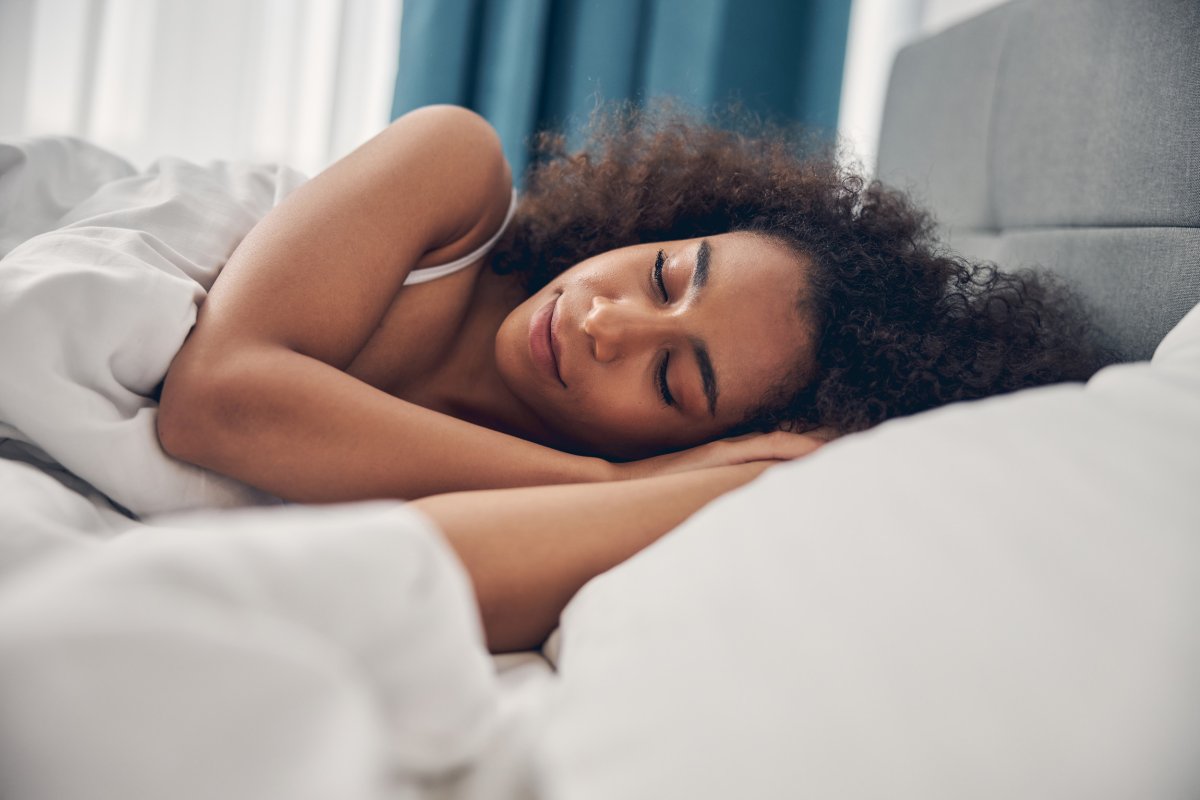Adults spend about one-third of their lives sleeping. But sleep is more complex than many people might realize.
Rather than being a single state, sleep occurs in two main forms. Rapid eye movement sleep accounts for around 20 percent of the night in healthy individuals and non-rapid eye movement sleep makes up the rest.
Non-REM sleep is further divided into stages 1, 2, 3 and 4—representing a continuum from light to intermediate and deep sleep.
Deep or slow-wave sleep, which occurs during stages 3 and 4, makes up about 10 to 15 percent of the night for most adults. As we age, however, we tend to get less of it, Dr. Rafael Pelayo, a clinical professor of psychiatry and behavioral sciences at the Stanford Center for Sleep Sciences and Medicine, told Newsweek.
According to Pelayo, when we are in stage 3 or 4 sleep our threshold for being woken is much higher than in other stages.
Dr. Greg Elder, a senior lecturer in psychology with the sleep research division at Northumbria University in the U.K., told Newsweek: "Sleep is classified into different stages depending on the underlying brain activity during sleep, which we can measure using electrodes placed on the scalp and body. This is usually done within a sleep laboratory or, increasingly, in people's usual home environment.
"Slow-wave sleep is characterized by slow, high-amplitude, waves of brain activity which tend to ebb and flow during this stage of sleep. We tend to get more [deep sleep] in the early stages of the night. [Deep] sleep is a generally a good marker of how long we have been awake for and of our 'sleep need.'"
According to Elder, deep sleep helps us to feel refreshed, primarily because it affects lots of different bodily systems that are important to our health. When deep sleep is disrupted, the individual will experience a negative effect on their daytime performance and feel sleepier over the course of the day.
Michael Breus, a clinical psychologist who is a diplomate of the American Board of Sleep Medicine and a fellow of the American Academy of Sleep Medicine, said deep sleep was crucial to our physical restoration, describing it as "wake up and feel great" sleep.
During deep sleep our blood pressure drops, respiration slows, growth hormones increase for muscle repair and increase immune function, and the brain is detoxified.
"This is where true cellular repair is initiated, for anything that went wrong during the day," Breus told Newsweek.
In addition, during deep sleep, the consolidation of memories occurs, as well as the processing of learning and emotions.

How To Get More Deep Sleep
If you are feeling tired because you are not getting enough deep sleep, are there lifestyle changes you can make?
Breus said the first step toward helping an individual to get more deep sleep is waking at the same time each day and knowing the right time to sleep based on your chronotype. This is the natural inclination of your body to sleep at a certain time—think "early birds" versus "night owls." (If you don't know your chronotype, you can take this quiz.)
Second, stopping the consumption of caffeine before 12 noon is important because the substance can stay in our body for several hours and interfere with sleep, according to Breus.
He also recommends avoiding alcohol at least three hours before bed. Although alcohol may help you to fall asleep quicker, it can also lead to disruptions later in the sleep cycle.
Finally, Breus recommends doing some form of exercise every day, which can help to prolong the amount of time you spend in deep sleep.
Elder said slow-wave sleep was affected by how long we have been awake for, as well as the timing of our sleep.
"Trying to maintain a regular sleep/wake schedule, and avoiding unnecessary naps, will help to avoiding interfering with our brain's need for sleep, and promote slow-wave sleep," he said.
"Other ways in which we can help to sleep more deeply is to ensure that we have a good bedroom environment—for example, not working or eating in the bedroom before going to sleep, and trying to avoid going to sleep when we are stressed."
According to Dr. Lukas Krone, a neuroscientist specializing in sleep at the University of Oxford, many aspects of modern life are "detrimental" to sleep.
"Therefore, most people with sleep problems already benefit hugely from following a simple set of tips called 'sleep hygiene,'" Krone told Newsweek.
"For example... practicing relaxation techniques and dimming your light one or two hours before going to bed, and creating a restful sleeping environment without a buzzing mobile phone or a flickering TV screen are very effective measures to find good sleep."
"People with chronic or severe sleep problems, however, should seek medical advice to search for underlying conditions, such as sleep apnea, that require specialized treatment."
Pelayo said psychological factors also played an important role, pointing out that we sleep best in states of "serenity," when we are feeling "safe, comfortable and loved."
He explained: "When that's happening, you have the luxury of being able to sleep deeply. If you go to sleep in a state of uncertainty of any kind—it doesn't matter what you're uncertain about, it could be something as simple as leaving the front door unlocked or thinking about whether your alarm is on or not—the brain will react by causing you to sleep as lightly as possible.
"Everybody who has insomnia still sleeps, but they sleep very lightly, because they sleep in a state of apprehension."
Given the multiple stresses of modern life, what can people do to ease their minds before going to bed? One technique that Pelayo has found particularly helpful for patients who say they have racing thoughts at night is journalling, or what he describes as "scheduled worry time."
"For most people, the only time they are alone with their thoughts is when they're in bed. So, they're in bed saying, 'I gotta take care of this, I can't forget to do this.' Now you're telling your brain to remember something, which is not allowing your body to go to sleep."
"The idea of journalling, or scheduled worrying time, is to take some time in the evening—after you've done your chores and taken care of whatever responsibilities you have—to sit down and organize for tomorrow" by writing a to-do list.

You can also write down the thoughts that are in the back of your mind, such as desires to go on vacation, perhaps, or to try a new sport.
Pelayo added: "After 15-20 minutes of writing this stuff down, tell yourself, 'I'm done with my day, whatever is left, I'll finish off tomorrow.' Say it and believe it—then you give the day closure.
"After you've written this stuff down, don't just hop into bed because you've actually just been churning your brain. Now do something that you enjoy and is relaxing—a warm bath, reading for pleasure. The whole point is to give your day closure."
Pelayo also said there might be physical or environmental factors that prevent someone from sleeping well.
"Some people just have a crappy mattress, for example. Or some people sleep lightly because their bed partner is snoring."
Although some people who aren't sleeping deeply may be tempted to reach for a sleeping pill, experts cautioned that this may not necessarily be the best approach.
When asked whether deep sleep induced by taking a pill is as recuperative as natural deep sleep, Elder said: "Potentially, but it is too soon to say and probably not in the real world."
"There are a number of medications which are under investigation and which seem to show promising results. These include tigabine, which is an anti-convulsant that is usually used to treat epilepsy, and gaboxdol, which has been tried for a range of conditions such as Alzheimer's disease," he said.
"However, whilst they can improve slow-wave sleep in controlled experiments, these medications can lead to people having problems with dependence, tolerance and side effects. In my opinion, trying to improve our sleep by changing our sleeping behavior would be better and potentially safer."
According to Breus, some sleeping medications do not even allow the brain to go into slow-wave sleep.
Meanwhile, Krone said, to date, no sleep medication can induce a "natural" deep sleep pattern.
"Most sleeping pills dampen brain activity broadly. This helps winding down and falling asleep but some essential active processes underlying the restorative functions of sleep seem to be impaired by commonly used sleeping pills," he said.
Currently, neuroscientists are working to understand the brain systems that regulate sleep.
"This research ultimately aims to find ways to facilitate the natural process of falling and maintaining asleep using drugs or brain stimulation techniques," Krone said.
Update 01/26/22, 12:38 p.m. ET: This article was updated to include comments from Lukas Krone.

Uncommon Knowledge
Newsweek is committed to challenging conventional wisdom and finding connections in the search for common ground.
Newsweek is committed to challenging conventional wisdom and finding connections in the search for common ground.
About the writer
Aristos is a Newsweek science reporter with the London, U.K., bureau. He reports on science and health topics, including; animal, ... Read more
To read how Newsweek uses AI as a newsroom tool, Click here.








